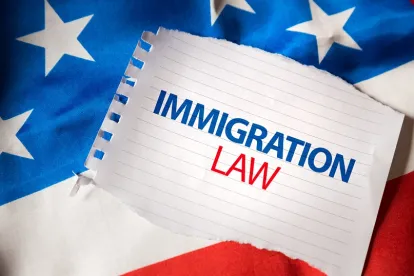The Department of Homeland Security’s latest Regulatory Agenda promises some big changes, especially for the H-1B visa program.
Many of these changes have been proposed before, but have not yet made it to the rulemaking stage.
Among what to expect are the following:
-
USCIS is planning to release a notice of proposed rulemaking to create a registration requirement for those seeking H-1B cap-subject petitions. The upside is that employers would have to file full petitions only if the case they register “wins” in the annual lottery. The downside is that it is not yet clear how USCIS will decide which cases should be accepted. In keeping with the “Buy American, Hire American” executive order and President Donald Trump’s focus on the “best and brightest,” the lottery may no longer be random. Petitions may be selected hierarchically, with individuals having the most advanced degrees and highest salaries at the top of the list. There is also the possibility that USCIS will decide how many applications to accept from any particular company, which likely will reduce the number of H-1Bs awarded to outsourcing and staffing companies.
-
USCIS expects to finally release the notice of proposed rulemaking to eliminate H-4 employment authorization documents (EADs) in November. At that time, questions about whether those who currently have H-4 EADs will be able to continue to renew their work authorization will likely be answered. This has been a destabilizing issue for the many spouses of H-1B visa holders, primarily Indian nationals, who have been eligible for H-4 EADs since 2015. Approximately 90,000 spouses currently hold H-4 EADs.
-
By August 2019, post-H-1B cap filings, USCIS plans to move forward with a rule (“Strengthening the H-1B Nonimmigrant Visa Classification Program”) that would enshrine new definitions of the terms “specialty occupation,” “employment,” and “employer-employee relationship.” USCIS’s definitions (or, at least, hints of them) have already been seen in guidance that has been issued and in Requests for Evidence regarding and denials of H-1B petitions.
Other expected proposed notices of rulemaking include:
-
Updating the USCIS fee schedule (February 2019)
-
Mandating electronic submission for all immigration benefit requests (April 2019)
-
Limiting access to the USCIS Administrative Appeals Office (AAO) for appeals (April 2019)
-
Eliminating concurrent filings of I-140 petitions and I-485 applications (September 2019)
-
Updating recruitment requirements for the H-2A and H-2B programs (October 2018), and modernizing the H-2A labor certification process (December 2018)
-
Raising investment levels and curtailing the designation of Targeting Employment Areas for the EB-5 program (November 2018)
-
Initiating process changes for EB-5 Regional Center applications (March 2019)
-
Increasing monitoring of the EB-5 Program (September 2019)
We will continue to keep you updated on these and other new proposals.




 />i
/>i

